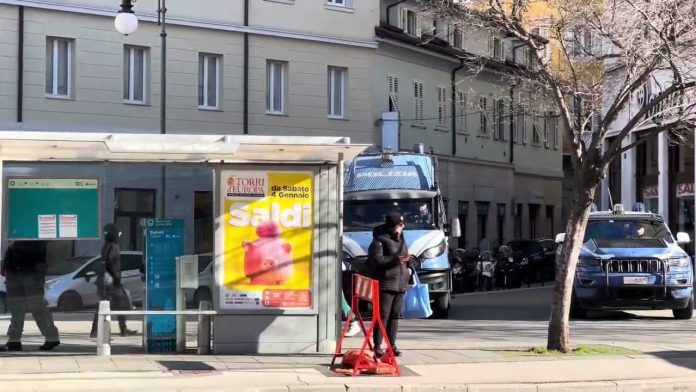by EH
From January 23 to March 31, 2025, a new series of municipal ordinances aimed at combating violence and urban decay will be enforced across a large swath of our city. The measures, which include restrictions on nightlife and beverage consumption, were announced by city officials following a wave of public concerns about safety and livability.
The ordinances will apply to an expansive area stretching from Piazza Libertà to Viale D’Annunzio, encompassing dozens of streets and squares, including Piazza Oberdan, Piazza Dalmazia, Piazza Verdi, and Corso Cavour. According to city authorities, the decision stems from multiple incidents of violence involving groups of individuals near public establishments, commercial businesses, and artisanal vendors.
“This is a targeted measure born out of the need to protect compliant public establishments that could otherwise be affected by those that are not,” said Deputy Mayor Serena Tonel, who also serves as Councillor for Productive Activities. “The aim is to promote a civil coexistence that ensures the operation of responsible public businesses while safeguarding residents.”
The measures, introduced in response to discussions at the Public Order and Security Committee on January 15, include strict closing hours for businesses and restrictions on the public possession and consumption of beverages.
Key Provisions
- Early Closures: Public establishments, food-selling businesses, vending machines for food products, and artisanal vendors must close by midnight and may not reopen before 6:00 a.m.
- Beverage Restrictions: From 10:00 p.m. to 6:00 a.m., it will be prohibited to possess or consume beverages in glass bottles or aluminum cans in public areas or private areas open to the public.
- Delivery and Outdoor Consumption: Home delivery services are permitted during restricted hours. Public establishments may serve beverages to customers seated at tables or other designated areas outside their premises, provided they adhere to operational and regulatory guidelines.
Violations of these ordinances will result in fines ranging from €500 to €3,000 for business-related offenses and €50 to €300 for breaches of beverage consumption rules.
A Broader Strategy
Councillor for Public Safety Policies Caterina de Gavardo described the ordinances as part of a larger municipal effort to improve safety and quality of life in Trieste. “The new anti-decay ordinances are the municipal administration’s prompt and decisive response to citizens’ demands,” de Gavardo said. “These measures complement other important initiatives we have introduced in recent months, such as expanded video surveillance, subsidiary security services in pedestrian areas, and inter-agency patrols coordinated by the Police Headquarters.”
The ordinances align with the prefect’s existing “Red Zone” measures, which designate high-risk areas for heightened law enforcement presence. Similar initiatives implemented last year in smaller zones around Piazza Libertà, Piazza Garibaldi, and Piazza Perugino reportedly yielded positive results, reducing instances of urban decay and receiving widespread approval from residents.
A Balancing Act
While city officials frame the ordinances as necessary to ensure public safety and protect law-abiding businesses, the measures have sparked debate. Critics argue that early closures and beverage restrictions may disproportionately affect nightlife and cultural activities in a city renowned for its vibrant public spaces. Supporters, however, view the measures as essential to curbing violence and fostering a more livable urban environment.
For now, the city’s leaders remain resolute. “This is about safeguarding the dignity of our city and its residents,” said Tonel. “We’re committed to finding the right balance between fostering economic activity and ensuring public safety.”
As Trieste begins this three-month experiment, all eyes will be on whether these bold steps can restore a sense of order and tranquility to its historic streets.





























